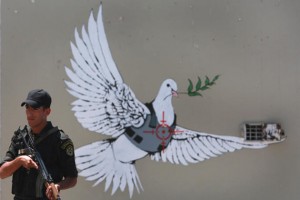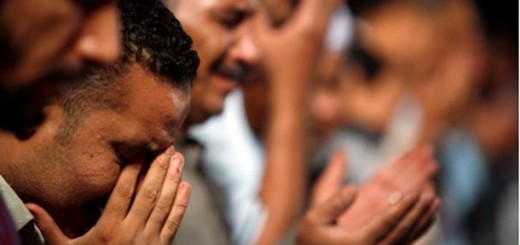To those who much is given, much is expected
In international trade, you sometimes come across the concept of “most favoured nation” status. This is where one state agrees to give another state access to its market on the best terms it has available. Low tariffs and high quotas all mean that the most favoured nation will do well out of the international trade. Today in Exodus 19, we begin to read about the Hebrew people as the Israelites or the Children of Israel and their “most favoured nation” status with God.
Then Moses went up to God, and the Lord called to him from the mountain and said, “This is what you are to say to the descendants of Jacob and what you are to tell the people of Israel: ‘You yourselves have seen what I did to Egypt, and how I carried you on eagles’ wings and brought you to myself. Now if you obey me fully and keep my covenant, then out of all nations you will be my treasured possession. Although the whole earth is mine, you will be for me a kingdom of priests and a holy nation.’ These are the words you are to speak to the Israelites.” Exodus 19:3-6
God has saved them. If the Children of Israel keep the covenant, then out of all nations, they will be God’s. From this point on, we begin to see that the promise made to Abraham, Isaac and Jacob is now close to being a reality. The people of Israel are travelling to the Promised Land, the Land of Canaan – a land flowing with milk and honey. Sounds idyllic. Sounds like a great place for God’s holy people. So how did something clearly intended to so good, end up being so bad today? How did the “Holy Land” become a place of such injustice?
Now in a short blog, we don’t have time or space to cover 5,000 years of history and how three major religions – Islam, Judaism and Christianity – all came to see Jerusalem as a holy city. However, as our eyes begin to focus on Jerusalem and Bethlehem as we begin to look forward to Advent and Christmas, it is impossible to believe that this is how God wanted it to be.
Did God, when He uttered those the words above, really expect the ramifications to still be felt today by Palestinian children huddled in air raid shelters in Gaza or Israeli children travelling on buses with armed guards for fear of suicide bombs?
 A few personal thoughts from me.
A few personal thoughts from me.
First, we should all start from a position of humility and repentance for what has been done in the name of religions. The God of Abraham, Isaac and Jacob led to three religions being created – and history has allowed each to have the upper hand down the ages. The scale of suffering on each side cannot be compared. Any suffering is wrong and we should repent of that which was done in the name of our religion’s world view and understanding of God. When Moses stood on holy ground, he took off his shoes and humbly lay before God – so should we.
Second, there can be no winner. Peace is only possible through compromise. There is an unholy alliance of Evangelical Christians and Jews who are willing to bury so many hatchets as long as they can agree on their Zionist world view. It suits some Christians to see Jews returning to Zion because it was prophesied that it would happen before the second coming. So because of that, we should allow it to happen at any cost? Surely not. The future must be for multiple states living in a peaceful compromise. Walls must be brought down – where is a latter day Joshua to sound God’s trumpet of justice and bring the unjust walls crashing down?
Finally, we should each act in the sphere in which we have influence:
- be educated and understand what is going on on Israel and Palestine
- the Bible is a journey that is not to be constrained by a proof text taken out of context. Use the test of “love” – if there is no love, how can we say God is in it?
- Boycott products made by settlers on Palestinian land. The UN and most of the world think profit from land grabs is wrong. So should we.
- be positive and support those who are building a “Holier Holy Land”. Buy Zaytoun olive oil or Palestinian handicrafts so that people can live better lives through trade.
Each week in our Anglican services, we quote from Micah 6:8 and ask God to help us “to do justice, love mercy and walk
humbly with you, our God”. When we walk with justice, mercy and humility in mind, we walk as true peacemakers. How can we be peacemakers today?













I have really enjoyed joining your journey this week. Every day has supplied me with thought provoking challenges. You both write so well, with so much insight. Thankyou!!!
Thanks for your kind words Ros. Nice to know that people are actually reading them… 🙂
I read them every day!! I am massively grateful to you for getting up early and putting all the effort required into these posts !!